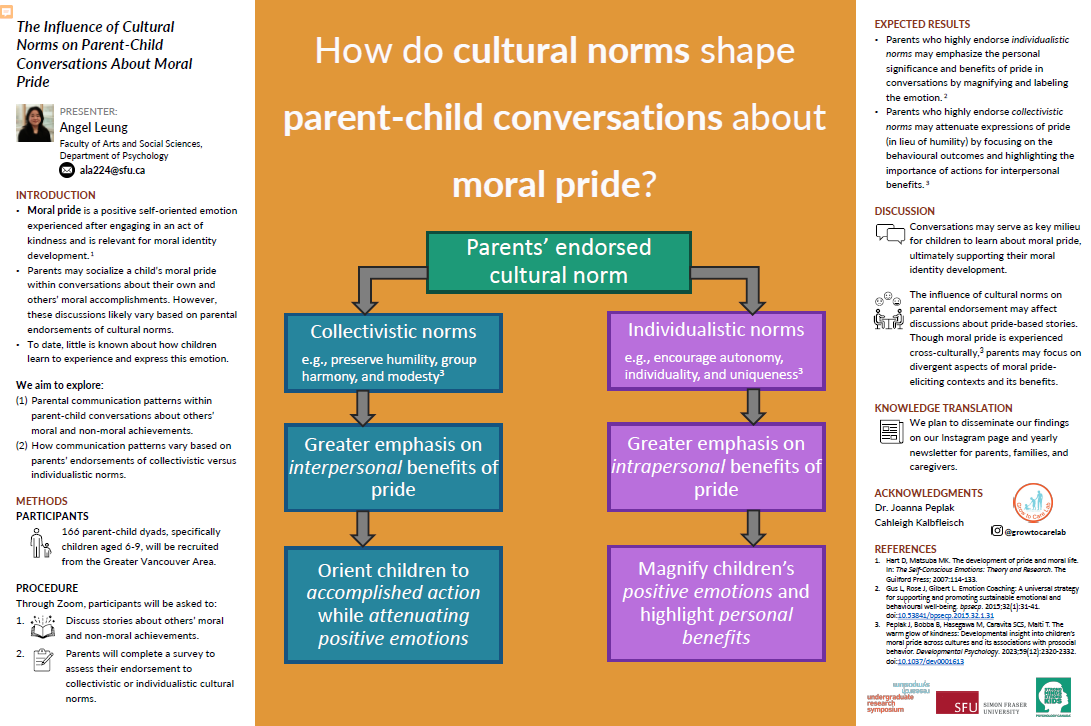The Influence of Cultural Norms on Features in Parent-Child Conversations of Moral Pride
Main Article Content
Abstract
Moral pride—a positive emotion after engaging in an act of kindness—can serve as a psychological reinforcement for continued moral action. Cross-cultural research on moral pride suggests it emerges from 6 to 9 years of age, with Western countries (e.g., Canada) expressing heightened levels and Eastern countries (e.g., Japan) experiencing dampened levels. Considering the value of modesty and group harmony, collectivistic cultures tend to suppress expressions of pride, whereas this emotion is promoted in individualistic cultures. Yet, there is a dearth of research on how moral pride is socialized in conversations and the role cultural background plays in (in)directly promoting or attenuating pride-related emotions in children. Our study aims to explore (1) parental communication practices within moral pride-discussions between parent-child dyads, and (2) the role of culture in parental socialization strategies of moral pride. We will recruit 80 ethnically diverse parent-child dyads (children ages 6 to 9 years) from the Greater Vancouver Area. Dyads will discuss stories designed to evoke pride following moral and achievement-related accomplishments. Parents will complete the Singelis’s norms subscale to gauge adherence of collectivistic or individualistic cultural norms. We predict that parents who endorse individualistic cultural norms will guide their children towards positive emotions, by emphasizing the importance and benefits of pride within conversations. Conversely, parents endorsing collectivistic norms may direct their children towards the action that leads to accomplishments, while downplaying the significance of pride itself. Preliminary findings will be presented upon the commencement of data collection.
Article Details

This work is licensed under a Creative Commons Attribution-NonCommercial-NoDerivatives 4.0 International License.

